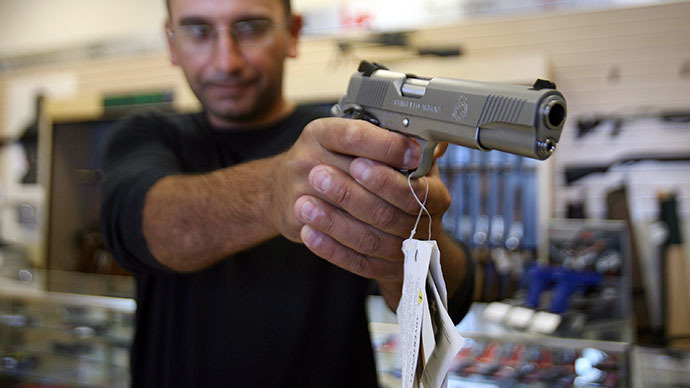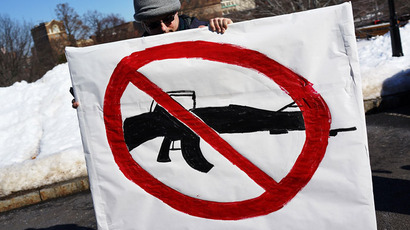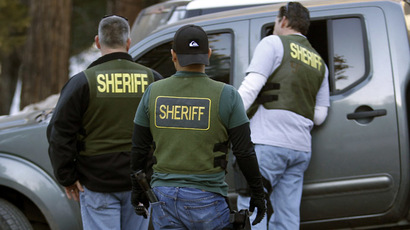Rush for gun permits following overturn of California firearms law

The number of applications for concealed weapons permits has exploded in California, especially in rural counties, after a federal court overturned legal restrictions on the traditionally Democratic state's concealed firearms law.
Approximately 56,000 residents in the state of 38 million currently have concealed weapons permits, which allows residents to carry weapons “capable of being concealed on the person,” (i.e. handguns).
On February 13, the 9th US District Court of Appeals ruled by a 2-1 margin that restrictions on carrying handguns was a violation of the Second Amendment of the US Constitution, which guarantees Americans the right to bear arms. Gun rights advocates praised the ruling, asserting that all citizens should have the right to defend themselves in public. Meanwhile, proponents of stricter gun laws warned that the decision was reckless.
“We are not holding that the Second Amendment requires the state to permit concealed carry,” Judge Diarmuid O'Scannlain wrote for the panel. “But the Second Amendment does require that the states permit some form of carry for self-defense outside the home.”
California is among eight other states that require residents to gain permission from the government before they are allowed to carry a concealed weapon.
There are 58 state and county officials who have the power to grant the permits. Each county holds residents to different standards, though, with urban centers set to higher standards than elsewhere. Last month, the federal court ruled that it is unconstitutional to require applicants in those areas to show “good cause” to acquire a permit (with either their life in immediate danger or having a job where they regularly carry valuables, for example).
An individual now only needs to show that “clear and present danger” exists.
Adam Winkler, a UCLA professor and renowned expert on gun laws, told Maura Dolan and Tony Perry of the Los Angeles Times that the February decision was “a huge victory for gun owners in California.”
“They have been seeking the right to carry concealed weapons for years now,” he said, adding that from a regulatory perspective, California's 2012 ban on open carrying was a mistake. “Gun control advocates have no one but themselves to blame for this ruling. You have to give someone some option to carry a gun.”
Since that decision, a number of county officials have come forward to report that the number of applications has surged. While not all of them disclosed official numbers, the Orange County Sheriff's Department told AP that it has received over 1,000 applications since the ruling – twice the amount that it typically receives annually.
Ventura, San Joaquin, San Diego, and several rural counties have also reported an increased number of applications – which cost between $150 and $300 – since the ruling. Each of those three counties said that the number in the last month alone has far exceeded the annual average. None of them have given out any permits, however, because of a three-month waiting period.
Orange County Sheriff's Department Lieutenant Jeff Hallock told Paul Elias of the Associated Press that the sheriff will likely wait until the regulations are settled before granting any permits.
“The sheriff does respect the ruling of the three-judge panel,” Hallock said.
Exactly how long that will take remains to be seen. The argument could go before the US Supreme Court, as the appeals court's decision stands in contrast to the high court's stance on guns – which is considered lenient on guns in the home while taking a more regulatory approach regarding firearms in public.














